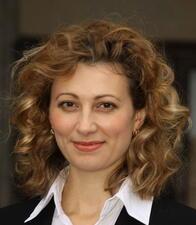Jewish History
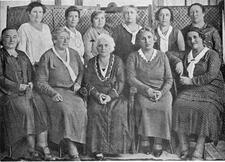
Suffrage in Palestine
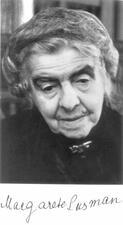
Margarete Susman
Margarete Susman published her first writings, a book of poetry, in 1901 and went on to have a prolific writing career that included plays, books, and journal articles. Susman combined literature and theory, often reflecting seminal texts of modern theory and addressing political issues and women’s rights. Her writings concentrate on the most problematic issues of the modern world: God and human beings, man and woman, Jew and Christian.
Nettie Sutro-Katzenstein
Marie Syrkin
Marie Syrkin is best known as a polemicist for the State of Israel, whose keen arguments appeared in a wide range of publications for a period of almost seventy years. Her life touched almost every significant aspect of Jewish life in America and Europe in the twentieth century.
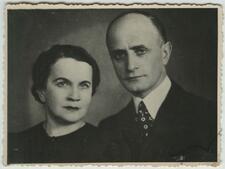
Bela Szapiro
Before World War II, Lublin was one of the largest Jewish communities in Poland. Bela Szapiro’s activities contributed to making it the vibrant cultural and political center of Polish Jewry that it was.
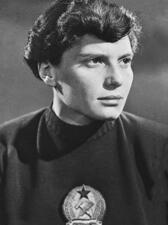
Eva Szekely
Born in Budapest, Eva Szekely was forced to stop swimming during the Nazi occupation of Hungary. However, she returned to the sport after the war and went on to win thirty-two national individual swimming titles and eleven national team titles. At the 1952 Olympic Games in Helsinki, she set a new Olympic record in the 200-meter breaststroke.
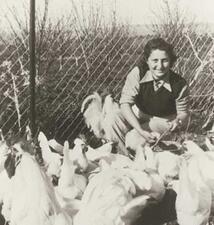
Hannah Szenes (Senesh)
Hannah Szenes has attained legendary status in the pantheon of Zionist history. After immigrating to Israel, Szenes agreed to participate in a military operation as a paratrooper. Hungarian authorities captured her and tortured her, but Szenes refused to talk. She was killed by a firing squad in 1944. Szenes mother published her daughter’s diary, poetry, and plays posthumously.
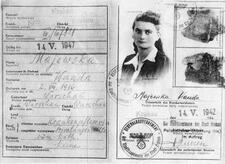
Tema Sznajderman
Tema Sznajderman was a fearless operative in the Jewish resistance to Nazism. She assumed undercover identities to investigate and transfer vital information across borderlines.
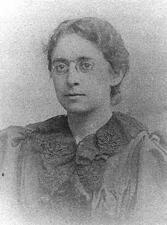
Henrietta Szold
Sara Szweber
Sara Szweber was an influential leader in the Jewish labor party, the Bund, first in Belarus, then in Poland, and later in New York.
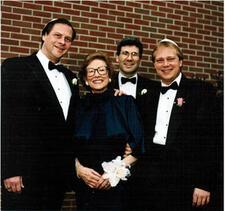
Marillyn Tallman
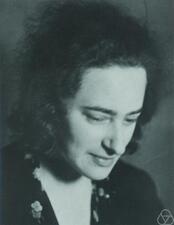
Olga Taussky-Todd
A self-proclaimed “torchbearer for matrix theory,” Olga Taussky-Todd made the previously little-known field essential for scientists and mathematicians.
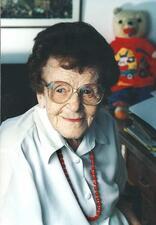
Yemima Tchernovitz-Avidar
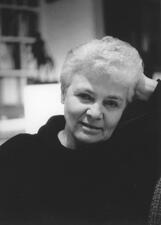
Nechama Tec
Nechama Tec's sociological work, informed by her experience as a Holocaust survivor, addresses the silences and inaccuracies surrounding the Holocaust and reveals untold stories of righteousness and rescue. Her experiences inspired the movie Defiance.
Faige Teitelbaum
When Faige Teitelbaum married Satmar rebbe Rabbi Joel Teitelbaum in 1936, she became the Satmar rebbetzin, in which capacity she was very active in charitable activities. After her husband’s death, she became the only woman in the Hasidic world to function as a de facto rebbe and leader.
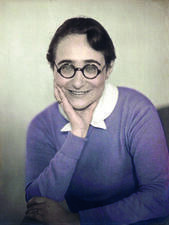
Gabriele Tergit
Rising to prominence as a journalist in Weimar-era Berlin, Gabriele Tergit, née Elise Hirschmann (1893–1982), was an important chronicler of German-Jewish life. In her journalistic writings and novels, Tergit wrote biting social satires, sweeping panoramic novels, and lucid, hard-hitting commentaries on current events. A liberal whose writings reveal her strong commitments to social justice, women’s rights, and humanism, Tergit was forced to flee Germany in 1933 and settled permanently in London in 1938.
Hannah Thon
Hannah (Helena) Thon was a social worker, journalist and editor, a student of Israel’s ethnic communities, and one of the leading figures in the women’s voluntary social-welfare organizations during the Yishuv (pre-State) period in Israel.
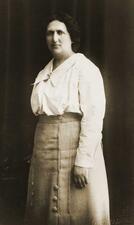
Sarah Thon
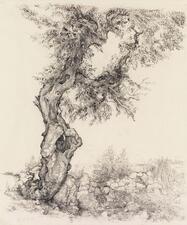
Anna Ticho
From the moment she arrived in the city in 1912 until the day she died in 1980, Anna Ticho lovingly portrayed Jerusalem in paint, pen and ink, charcoal, pastel, and pencil. Her works have been shown around Israel and abroad, and she has received numerous honorary titles and awards. She bequeathed her home, Ticho House, to the Israel Museum to be used as a site for exhibitions and cultural events.
Mahinarangi Tocker
New Zealand singer-songwriter Mahinaarangi Tocker (1955-2008) was best known as a Maori musician, but her Jewish heritage was an essential component of her identity and her music.
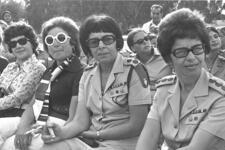
Dvora Tomer
Dvora Tomer had a career in the Israeli military for three decades, during which time she worked to expand women’s opportunities in the Israel Defense Forces to include a wider range of roles and fairer treatment.
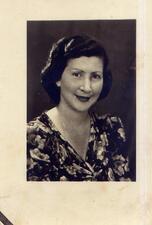
Mina Tomkiewicz
Mina Tomkiewicz was a Polish author who wrote two books based on her personal experience growing up in Warsaw, Poland, and her deportation to Bergen-Belsen concentration camp.
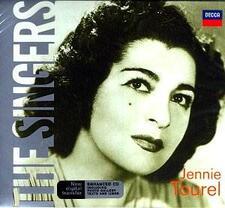
Jennie Tourel
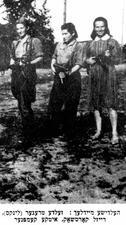
Zelda Nisanilevich Treger
Zelda Treger was born in Vilna, Lithuania, which was occupied by the Germans beginning in June 1941. Treger soon joined the United Partisan Organization (FPO) and was tasked with smuggling groups of residents and supplies out of the ghetto and labor camp. Escaping capture several times, she aided in the liberation of Vilna and ultimately settled in Tel Aviv, where she remained until her death.
